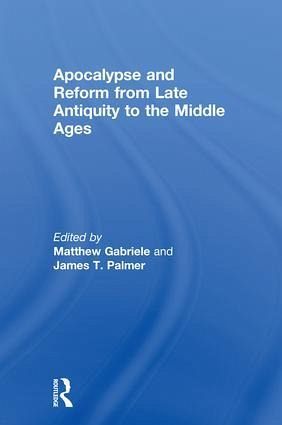
Apocalypse and Reform from Late Antiquity to the Middle Ages
Versandkostenfrei!
Versandfertig in 1-2 Wochen
168,99 €
inkl. MwSt.
Weitere Ausgaben:

PAYBACK Punkte
84 °P sammeln!
Apocalypse and Reform from Late Antiquity to the Middle Ages provides the ideal introduction to what reformist apocalypticism meant for the formation of Medieval Europe, from the Fall of Rome to the twelfth century.














